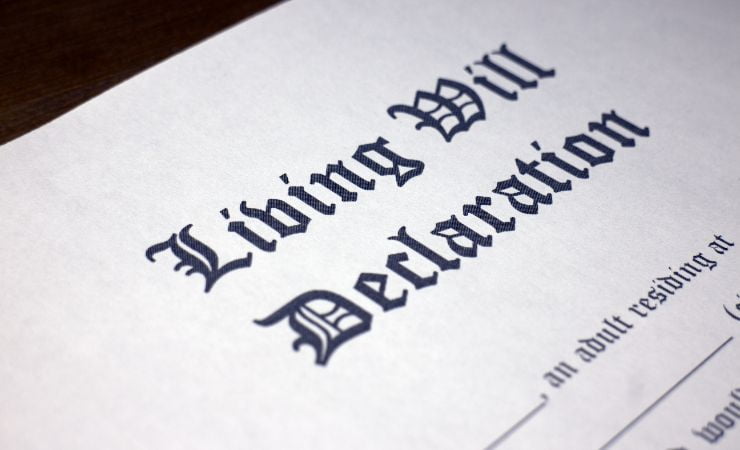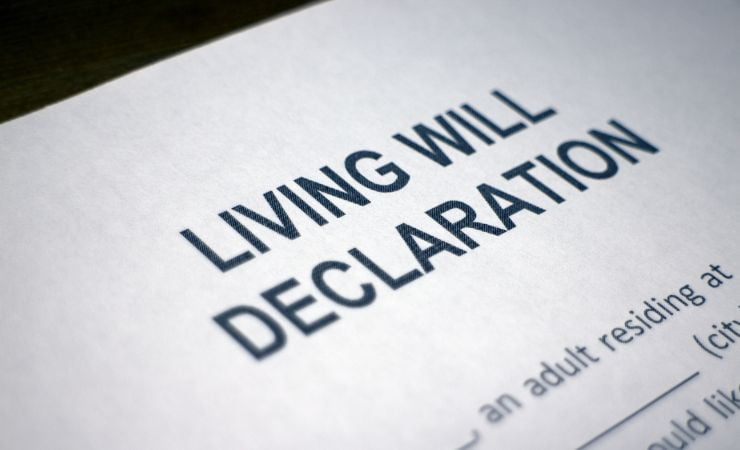What Revokes a Will in California?

Planning for the eventual end of your life can give you and your family some peace of mind. Creating a will or a trust will help protect your assets and also provide financial or material support for loved ones when you are gone. There are many different decisions that go into creating a will.
You must decide which assets to give to which people and who will be in charge of carrying out your wishes. You must also ensure that everything is properly signed and filed. It is important to have those decisions made before starting the process. However, in some circumstances, a will may need to change. Working with an experienced probate attorney like the team at Sweeney Probate Law can make the process of revoking a will easier to manage.
The Basics of Creating a Will
A will, also called a “last will and testament,” is a way for individuals to determine how their assets will be distributed once they have passed away. The document is legally binding and provides a written record of what their wishes are in the event of their death. A will allows them to decide what assets to include, such as real estate or financial assets, and who they will be distributed to.
There are many important choices that must be considered when you are developing a will. First, you must decide which assets you will include in the will. This could be vehicles, stocks, real estate, or monetary assets. You must then decide who you trust to be your executor. This is the person responsible for carrying out your wishes once you have passed away. Once all of the key decisions have been made, the will must be written, signed, and seen by two witnesses to be legally binding.
There are only two legal stipulations in California for creating a will:
- An individual must be at least 18 years old.
- The individual creating the will must be of sound mind.
That means that they fully understand the process they are undertaking and have consented to it. Many people believe that a will is only useful for those who are older or may be facing a serious illness. In reality, a will can benefit nearly anyone.
Reasons to Create a Will
If you want to guarantee that your loved ones are taken care of and can support themselves when you die, then it is important that you create an estate plan. There are plenty of estate planning options to meet a variety of needs. One of the most common estate planning tools is the last will and testament. Many people choose to create a will for countless reasons.
The patriarch of a large, wealthy family may create a will to ensure that their assets are protected and distributed equitably among the family members. Some people may have very specific wishes for what they would like to happen to their belongings and investments in the event of their death, so they create a will to be certain that their wishes are followed. An individual who is terminally ill may put a will in place to help ensure that their family can pay any outstanding debts and to remove some of the stress from losing a loved one. Regardless of circumstances, having a will is the best way to ensure that your wishes are followed when you pass away.
How to Revoke a Will in California
In the state of California, there are strict regulations surrounding who can and cannot revoke a will. The only individual who can revoke a will in California is the testator, or the person who created the will in the first place. This means that a will can only be revoked while the original creator is still alive. The document is fully binding after their death. However, it can be challenged if a family member believes they are entitled to a portion of the assets they did not receive.
If an individual chooses to revoke their will in California, they have two options. First, they can destroy the original will. This means that the physical, written document for the first will must be burned, torn, or ruined in some way with the express purpose of destroying it. If they do not want to destroy the original will, they also have the option to draft and finalize a new will. For the new will to revoke the old one, it must say in writing that the previous will is null and void.
FAQs
Q: On what grounds can a will be challenged?
A: In California, there are four primary reasons why a will may be challenged.
- There is a suspicion that the testator was not of sound mind.
- There was an unnecessary influence on the individual developing the will.
- It was not signed properly.
- There is an accusation that the will may be fraudulent.
Q: What circumstances allow for a will to be revoked?
A: A will can be revoked by the original creator as long as they are exercising their free will. If they are being coerced, are not of sound mind, or are making changes under false pretenses, then the changes likely will not be valid. An individual may choose to revoke their will for several reasons. For one, the will may not be necessary or effective anymore. Also, a will may be revoked if a new one is made.
Q: What are two ways a will may be revoked?
A: The individual who originally created the will is the only person who can revoke it. Once they have passed away, the will may be challenged, but it cannot be changed. While they are still living, there are two ways for the will to be revoked.
- The original document can be destroyed by burning, tearing, or other methods, so long as the intention is to destroy the document.
- A new will is created that states, in writing, that the old will is null and void.
Q: What could invalidate a will?
A: A will can only be invalidated in California if the original creator of the will declares that the original will is null and void. This can be done in writing when a new will is created. Any new documents must clearly state that the previous will is invalid. The original will could also be invalidated if it were destroyed by the testator.
Estate Planning With Sweeney Probate Law
Planning for the end of your life may seem morbid or overwhelming. However, it is an important step to ensuring that your family is cared for and supported once you have passed away. Since circumstances are constantly changing, it is reassuring to know that the first will you write is not permanent. Contact the team at Sweeney Probate Law today if you need assistance planning or revoking a will.







